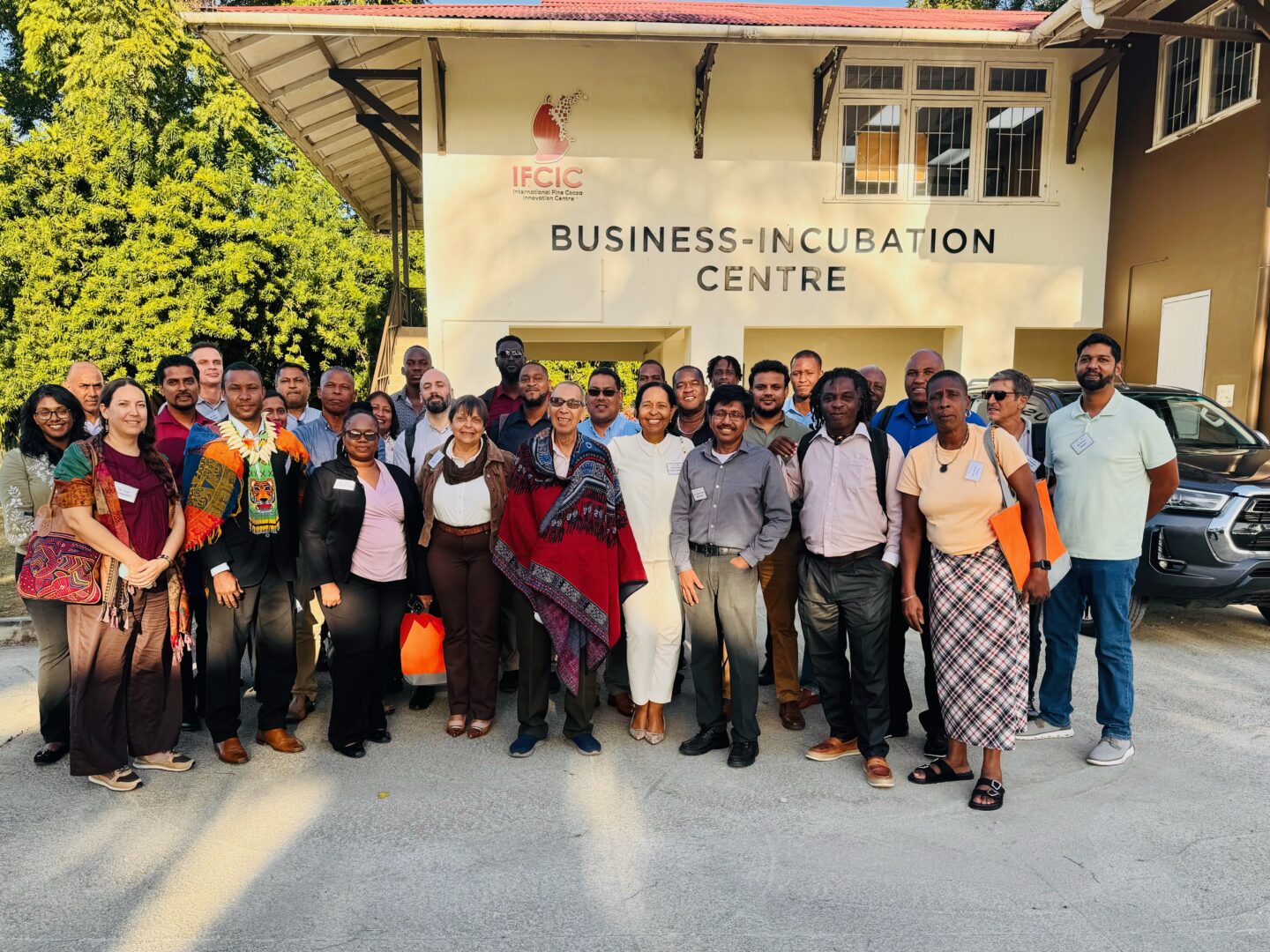Grenada played a pivotal role in the Sub-Regional Validation Workshop on the Caribbean Cocoa Industry Development Agenda, held on November 13 and 14, 2025, at The University of the West Indies, St. Augustine Campus, Trinidad. Organized by the Cocoa Research Centre (CRC) and the Food and Agriculture Organisation (FAO) of the United Nations, the event united cocoa-producing nations across the Organisation of Eastern Caribbean States (OECS) and Trinidad and Tobago for two days of strategic collaboration, technical exchanges, and roadmap refinement. Over the past year, FAO and CRC have collaborated with Caribbean countries to identify challenges in the cocoa sector and outline a structured roadmap for sustainable development. This initiative involved technical assessments, consultations with farmers and institutions, and analysis of genetic material, field practices, and post-harvest systems. The workshop provided a platform for countries to review findings, discuss challenges, and shape national priorities within a regional framework. Grenada’s delegation included Andrew Hastick, General Manager of the Grenada Cocoa Association; Kason Charles, Agronomist with the Ministry of Agriculture, Lands, Fisheries, and Cooperatives; and Shadel Nyack Compton, Managing Director of Belmont Estate, representing the private sector. They engaged in sessions on planting material pipelines, genetic improvement, climate resilience, pest and disease management, cocoa quality, cadmium mitigation, and market opportunities for fine-flavour cocoa. These discussions underscored the need for coordinated efforts to enhance cocoa production and value-added development in Grenada. Cocoa is a cornerstone of Grenada’s agricultural sector, renowned for its fine-flavour exports and the burgeoning tree-to-bar industry. Local processors are expanding production of chocolate, cocoa powder, and artisanal products, highlighting the importance of strengthening production systems, increasing output, and improving quality to support rural livelihoods, export earnings, and tourism. Hastick emphasized the workshop’s value in assessing Grenada’s current position and identifying areas for urgent focus, such as improving field practices, farmer support, and processing capacity. Charles highlighted the need to enhance local capacity, attract youth, and foster innovation, while Nyack Compton expressed gratitude for the CRC and FAO’s leadership and reaffirmed Grenada’s commitment to building a resilient cocoa industry. The Grenada team presented a national cocoa roadmap prioritizing the restoration of over 2,000 acres of abandoned cocoa lands, innovation in farm management, and expanding value addition. This initiative aims to double national production and achieve a long-term vision of 1,000 metric tonnes. Grenada remains dedicated to advancing a modern, competitive cocoa industry, leveraging its heritage, expertise, and potential to secure a thriving future for the sector.
